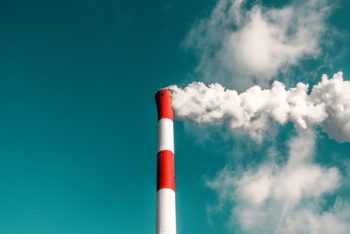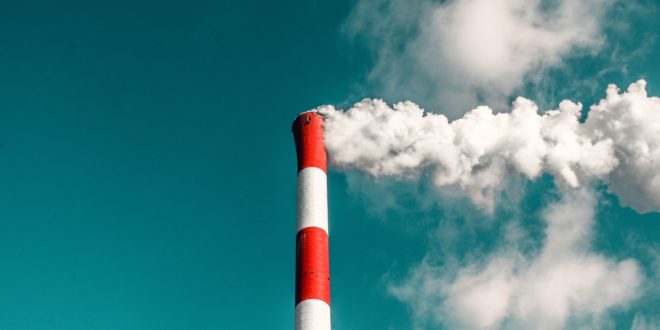OPINION: The general governmental reaction to Trump’s withdrawal from the Paris Accord has (predictably) been outrage. That is particularly so as the USA is a key part of the agreement and it was signed up to by his predecessor, Obama. The outrage is particularly sharp from Angela Merkel of Germany, not surprising because I think that Europe is where much of the extra burden is going to fall. Germany really personifies Europe and would be expected to lead any extra action – as if Merkel hasn’t enough problems of other kinds to deal with!
Withdrawals from governmental agreements are not unusual, but this one is significant because almost every nation of any consequence had signed up which meant that the basics of the agreements were at that point officially “mainstream” – a part of established international politics and thus beyond argument. There was a long diplomatic lead-up to this outcome. Trump’s departure was abrupt and not negotiated which did not help.
 There will be an outrage of a different sort – commercial outrage from the burgeoning climate change industry. Measures to reduce carbon emissions are being integrated into commercial operations all around the world, often at considerable cost, and that constitutes a formidable obstacle to change. No-one ever accused the industry of being particularly moral about this but the industry will go where the profits are and any move to change direction will undoubtedly have an impact. The industry likes certainty. This is particularly so in the renewable energy space where I think some types of firms are starting to struggle.
There will be an outrage of a different sort – commercial outrage from the burgeoning climate change industry. Measures to reduce carbon emissions are being integrated into commercial operations all around the world, often at considerable cost, and that constitutes a formidable obstacle to change. No-one ever accused the industry of being particularly moral about this but the industry will go where the profits are and any move to change direction will undoubtedly have an impact. The industry likes certainty. This is particularly so in the renewable energy space where I think some types of firms are starting to struggle.
One would also have to say too that the basis for the withdrawal is slightly weird and certainly indicates that Trump’s understanding of climate change issues is superficial at best – but what else would you expect given the superficiality of almost everything that he says and does. I still find it incredible that Trump can effectively make and unmake major policy positions simply by sending a tweet. One of the features of tweets is that they are inherently superficial and often ill-informed.
It is particularly simplistic to think that resigning from the accord will save the US coal industry. The US coal industry has declined for years and climate change policy certainly won’t save it. Coal is out of favour around the world, but that is basically because it is a dirty fuel to mine and use unless enormous amounts are spent on pollution control (and that creates its own problems) coal is very polluting to the environment. That is the main reason the Chinese are trying to reduce coal consumption, witness the mess that is the atmosphere in Beijing. This has little to do with climate change, although it is good politics to make that connection.
(And while we are on the subject of emissions from coal (or any fossil fuel) we should stop trying to demonise carbon dioxide. Carbon dioxide – as any scientist will tell you – is one of the basic elements on which life on earth depends and thrives – the other elements are oxygen and water. Irrespective of any global warming impacts, it is an important and essential part of our environment.)
So, getting back to the Trump decision, there are certainly some big negatives there.
However, it is far from being all negative. One of the unusual things about Trump is that he is generally trying to do exactly what he said he would do during the election campaign. The surprise is that this so often does not happen. Politicians will often find good reasons for not doing things they promised when they get into office – often for good reason. So, he certainly gets brownie points for doing exactly whatever he promised his constituents he would do.
There are also very interesting potential implications for other countries. I note with some interest that China and India – currently the largest emitters apart from the USA – have condemned Trump’s withdrawal and indicated they will step up their efforts in response. This ignores the fact that the Paris Accord essentially gives both countries a “free pass” – they effectively have carte blanche to keep on emitting until they catch up economically with the developing nations. So exactly what do they propose to do?
 The position of the US itself is also curious. It is the case that a great deal of emission reduction activity is going on at state level, e.g. California, and that will continue. But at a Federal level, Obama’s signing of the Accord was purely symbolic given that he would have found it impossible to get many proposed measures through Congress and the Senate. So in practice, there will be little change.
The position of the US itself is also curious. It is the case that a great deal of emission reduction activity is going on at state level, e.g. California, and that will continue. But at a Federal level, Obama’s signing of the Accord was purely symbolic given that he would have found it impossible to get many proposed measures through Congress and the Senate. So in practice, there will be little change.
Trump’s action may, however, focus attention on those nations who signed the accord with gusto, but have done little of any substance to implement it. There may well be a focus on how other nations are “stepping it up” to compensate for the Trump effect with embarrassing results. I would have to say that New Zealand falls into this category. The pastoral industry continues to emit methane and continues to grow (including its methane emissions) and outside of this most of the measures taken are ones that have little cost or are economically sensible anyway. I would put electric cars in this category, particularly given the (fortuitously) a large part of the renewable energy in our power system. As for the so-called “carbon market” and associated trading scheme, it is largely ineffective and a substitute for real action.
However, the most interesting aspect of Trumps’ action is whether it will force more of a focus on the key question of” why are we doing this?” What is the evidential basis for what has become a very expensive, worldwide policy? “Why are none of the predictions of doom and gloom coming to pass?”
Like many people if have my own opinion on that, but keep it to myself as raising it as a topic is unproductive. The risk of AGW (Global Warming to dangerous levels caused by human emissions) now seems to be an accepted fact, particularly at the political level, the population are either disinterested or simply want to know what they should be doing to contribute to the implementation of the policy. There is little interest in debating the subject. In this respect, I thought there was a particular irony in Al Gore getting the Nobel prize for his work on climate change – a vote of support from the establishment if ever there was – despite his famous “Inconvenient Truth” book being full of inaccuracies and worse. There is the occasional article in the newspapers but these generally sink without trace.
At one stage I thought that climate change might be the subject of a genuine scientific debate, but I suspect that time has passed. The standard mantra is that ‘The science is now well settled and we should just get on with it”. There is certainly no clear enthusiasm from the scientific community for a debate. Trump’s actions may or may not change that. I bet nothing will change.
 One of the confusing factors in all of this if of course the variable nature of climate. In reality, the climate is always changing – it is always getting warmer or cooler – and we continue to be subject to extreme weather events that may or may not be related to climate change. Curiously enough one of the constants in this – for more than a century, – is that there had been a slight but steady rise in average sea levels of around 20 cm a year, but this is predominantly natural and a part of the recovery from the little ice age of about 200/300 years ago. Don’t blame us, humans!!
One of the confusing factors in all of this if of course the variable nature of climate. In reality, the climate is always changing – it is always getting warmer or cooler – and we continue to be subject to extreme weather events that may or may not be related to climate change. Curiously enough one of the constants in this – for more than a century, – is that there had been a slight but steady rise in average sea levels of around 20 cm a year, but this is predominantly natural and a part of the recovery from the little ice age of about 200/300 years ago. Don’t blame us, humans!!
For a debate to actually occur what is needed is an adverse change in our circumstances which is clearly related to the human impact on climate change, and which is so marked and sustained that people demand to know what is going on. There are a number of things that could happen
- Sustained global warming could resume at the kinds of rates we saw in the 1980s/1990s (but fortuitously there has in fact been almost no global warming over the last 18 years or so. There was a burst of warming in 2015/16 but that was primarily due to a strong El Niño event and temperatures this year already look to be down on the previous year)
- There could be a period of prolonged global cooling as happened in the Middle Ages and in the 50s/60s last century, and some scientists are predicting this.
- Predictions about the melting of Antarctic ice or maybe Greenland Ice could come true, leading to a dramatic rise in sea levels and the drowning of coastlines around the world (in the meantime the mass of land based ice in Antarctica overall continues to grow and not decrease and in some areas of the world sea levels have been essentially static.)
- There could be a sustained change in the pattern of extreme weather events. Sustained means a structured change over many years.
There is a chance that none of these things will happen. Things will continue more or less as they are – instead climate change will become a historical item that people worried about excessively at some stage but no longer do. Where real risks develop (most probably at a regional level and local sea level variation is the most likely candidate)) sensible mitigation strategies will be developed and applied.
For our children and grandchildren, there are likely to be other issues to worry about of far more importance.
By Bas Walker
This is another of Bas Walker’s posts on Grownups. Please look out for his articles, containing his Beachside Ponderings.









Join the Discussion
Type out your comment here:
You must be logged in to post a comment.